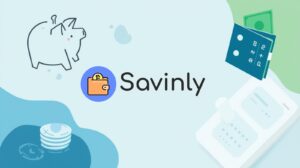Let’s be honest… managing money can sometimes feel like trying to plug leaks in a sinking canoe with bubblegum. You think you’ve sealed up that eating-out habit, but—poof—the payday sales get you. Or maybe, like me, you only realize you’ve been silently draining your funds when your “fun money” runs out on day ten of the month. Been there. The good news? You don’t need fancy spreadsheets or a finance degree to get started. A handful of free money management tips, a pinch of real talk, and a nudge in the right direction can turn things around.
This is your unofficial guide—less lecture, more “friend who gets it”—to saving more, stressing less, and feeling in control of your dollars (not the other way around). Ready? Let’s dig in—no guilt, no jargon, no judgment.
Track Your Spending
Where Is Your Money Really Going?
Okay, tell me—have you ever tried to remember where all your money went at the end of the month…and drawn a total blank? Those tiny $3 coffees, add-ons at checkout, that little “I deserve this!” treat—they’re cute until you total them up and realize they’re eating your lunch (literally and figuratively).
Here’s my not-so-fancy advice: for one week, write down (or tap into your phone) every single thing you spend money on. Yes—EVERYTHING. Even the late-night $1 fries. Want a shortcut? Free apps like Mint, or even a DIY spreadsheet, do the math for you. For old-school souls, a pocket notebook works too. The key is not to judge—just notice. I once found out I was spending more on vending machine snacks than on actual groceries! (Oops.)
| Tool | Pros | Cons | Best for |
|---|---|---|---|
| Notebook | Simple, no tech needed | Manual, easy to forget | Paper people, starters |
| Free Apps | Auto-categorizes, reminders | May need linking accounts | Phone always in hand |
| Spreadsheets | Fully customizable | Setup time | Detail fans, Excel lovers |
When you spot those little leaks, you can plug them without feeling deprived. This is the same philosophy behind most money management tips from folks who’ve been there. It’s eye-opening—sometimes hilarious, sometimes humbling. Stick with it for a month and watch how your awareness alone cuts out the waste.
Budgeting Without Boredom
Is Your Budget a Bully… Or a Buddy?
Confession: I grew up thinking a budget was a punishment. Like, “Here’s why you can’t go out with your friends.” Turns out, a smart budget actually frees you up to say YES—to trips, to hobbies, to peace of mind. The trick? Make it work for YOU, not the other way around.
Start with the basics: add up what comes in (after taxes!), then subtract what has to go out (rent, bills, groceries). Whatever’s left? That’s your “choice money.” Tons of Free money management tips for beginners recommend the 50/30/20 rule: 50% for needs, 30% for wants, 20% for savings. But hey, if your rent is wild or student life calls for scrambling, adjust those slices of the pie. Swapping a streaming subscription for one night out? That’s a personal win.
Let’s break it down, real-life style:
- Needs: rent, groceries, utilities, transportation. The non-negotiables. Cover these FIRST.
- Wants: takeout, entertainment, the “well, why not?” purchases. Limit to ~30%, trim if you’re struggling.
- Savings: even a few dollars count. Trust me, more on that soon.
A friend once told me she “budgeted” $25 a month for her favorite bubble tea place—guilt-free! Knowing it fit into her plan made the treat way sweeter. Budgets aren’t fun police; they’re just maps to where you want to go.
Saving—Even If “There’s Nothing Left”
Does Saving Feel Impossible?
Oh, I’ve heard it…and I’ve said it myself: “I barely cover everything now. How am I supposed to save, too?” Listen, you don’t need to stash hundreds overnight. Tiny, steady deposits are the magic sauce—not big bursts once a year.
Try this: set up automatic transfers (even $10/week) to savings the minute you get paid. Out of sight, out of mind, out of spending reach. Think of it like paying your future self a tip. Experts in Money management tips for students say even $5 squirreled away adds up over time, especially with compound interest quietly growing it.
| Goal | Timeline | Monthly Target |
|---|---|---|
| Starter emergency fund | 6 months | $80 |
| Fun trip | 1 year | $40 |
| Debt payoff | Ongoing | Whatever you can spare |
I started by socking away leftover change from grocery runs (literally, in a jar). When I switched to auto-transfers, my “rainy day” fund surprised me after six months—enough to cover a flat tire, then some. Lesson: saving isn’t about huge leaps. It’s about habits. This guide to budget planning also swears by that power of the little steps.
Calm The Debt Storm
Which Debt First?
Debt feels… heavy, right? It can drain hope as much as money. But here’s a secret: it’s beatable—especially with a plan. First step? List out all you owe (yep, it might sting). Second, pay minimums on every account, then throw any extra dollars at the one with the highest interest (that’s “debt avalanche”). Or, if you need morale boosts, clear your smallest first and celebrate (that’s “debt snowball”).
A buddy of mine crushed $2,300 in credit card debt by eating out just once a week instead of five times—using those extra meals as her “extra payment” to debt. She celebrated every $100 gone with a homemade pizza night (cheap, cheerful, delicious). That kind of win keeps motivation up! For students, prioritize loans with the wildest rates, and check out Free money management tips for students to spot grants or aid early (the earlier you fill out FAFSA, the better your options).
| Method | How it works | Best for |
|---|---|---|
| Snowball | Pay off smallest debts first for “quick wins.” | Motivation seekers |
| Avalanche | Target highest interest rate debts first for maximum savings. | Penny pinchers |
Bonus tip: ask lenders about lower rates—you never know. And if you’re feeling lost, don’t go it alone. Campus counsel, nonprofit advisors, or friends who’ve “been there, paid that” are happy to swap war stories and swap advice.
Slice Everyday Costs
Where Can You Cut—With Zero Pain?
When you hear “frugal,” does your brain picture giving up all things fun forever? Ugh, no thanks. True frugality is about spending smarter so you can live better (and still have that Friday pizza). The trick? Micro-hacks that add up—no misery diet required.
Fo For starters, tackle food and transport—it’s where most of us leak cash without noticing. Try meal prepping on Sundays (Pinterest has a zillion “cheap and cheerful” meal ideas), look for store brands, or split bulk groceries with a roommate. Walking or biking instead of Ubering saves a shocking amount—and hey, extra steps, extra bragging rights.
| What | Frugal Hack | Savings |
|---|---|---|
| Groceries | Shop with a list, stick to it, skip brand names | $30-60/month |
| Dining out | Limit to once a week, use coupons | $40+/month |
| Entertainment | Free campus events, movie nights at home | $20/month |
| Transport | Walk, bike, carpool | $10-50/month |
I once hosted a thrift-store “potluck challenge.” Everyone brought a random find for under $5, and we all voted for best snack and weirdest item. WAY more fun (and cheaper) than bar hopping.
If you’re deep in student life, Money management tips for students often include using your student ID for discounts on anything from movie tickets to museum passes. Don’t leave money on the table.
Plan For The Future (No Crystal Ball Needed)
Already Planning Ahead?
Future—you know, that hard-to-picture “someday”? It sneaks up, so arm yourself with tiny habits now. You don’t need to be retirement-ready at 22, but opening a basic savings or investment account can get you in the habit. More on that in these money management tips and at this guide to creating a budget plan. Even if you’re starting smaller than you’d like, it’s the act of starting that matters.
Pro tip: Write out three short-term goals (like “save $100 emergency fund,” “pay off my credit card,” or “buy those noise-cancelling headphones cash-only”) and two long-haul dreams (first apartment, big trip, retirement). Review every few months—mark your wins, rejig your priorities. You’ll be surprised how quickly you rack up little victories.
Little-Known Free Resources
Where Can You Get Help, Free?
You don’t have to Google in circles or spend hours in the TikTok finance rabbithole. There’s a treasure trove of actually free tools. For hands-on budget sheets, calculators, or steps to avoid scams, the FTC’s Your Money guide is about as practical as it gets. Many online banks offer basic savings templates in their apps. Your school’s financial aid office has tips for every season (especially at crunch time), and for more, check Free money management tips for beginners—they’re simple, but gold.
I downloaded a printable worksheet once (yes, I’m a dork), and it was wild how just filling in those blanks made me rethink what really mattered to me money-wise. Sometimes, you just need to put pen to paper—or thumbs to phone!
Wrapping It All Up… Cheap Coffee And All
You made it—all the way through! Here’s the deal: getting your money right isn’t about being perfect, cutting fun, or living off instant noodles (unless you love them, then go wild). It’s just… paying attention, not beating yourself up, and making tiny shifts you can live with. Plug those leaks by tracking your spending, craft a budget that feels like a pal (not a prison guard), save even the smallest amounts, wrestle debt in bits, cut costs where it feels easy—not painful—and always steal tips from folks who’ve done it before. Explore tools like Free money management tips for beginners if you hit a wall.
So… which tip will you try—today, this week, this month? Don’t wait for “perfect.” Grab your notebook, peek at your bank app, call up your parent or roommate if you need a money talk. Every good change I’ve made started with a super minor moment of “Huh, maybe I could do that.” You can too. Rooting for you (and your coffee budget). Let me know how it goes?












